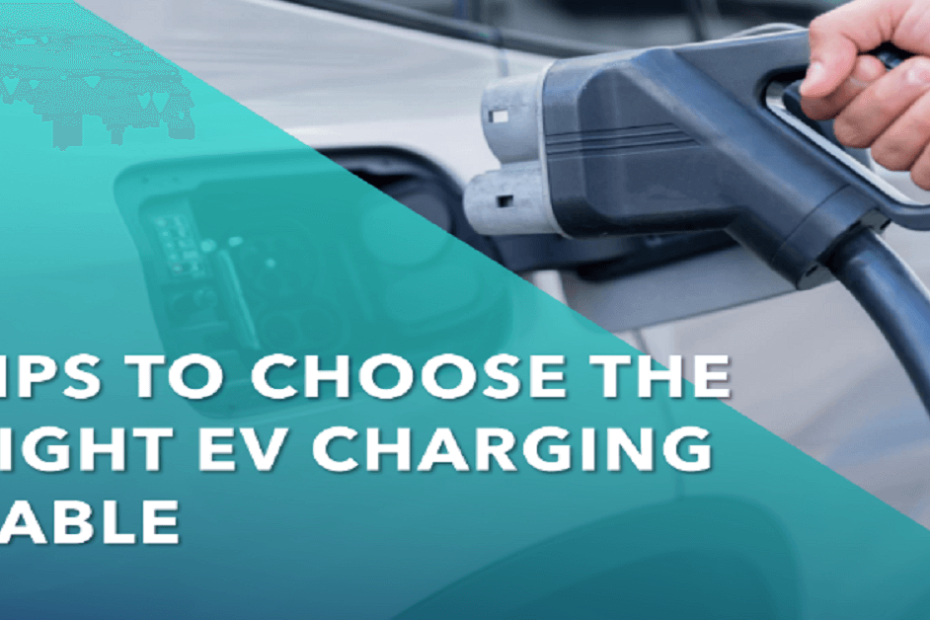As the world shifts towards a more sustainable future, electric vehicles (EVs) have gained immense popularity. With EVs becoming a common sight on roads, the need for efficient and safe charging solutions has grown exponentially. One crucial component of the EV charging infrastructure is the charging cable. Choosing the right EV charging cable is essential to ensure optimal charging performance, safety, and compatibility. In this article, we will provide you with valuable tips to help you select the perfect EV charging cable for your electric vehicle.
- Know Your Vehicle’s Charging Capability:
Prior to beginning your search for an EV charging cable, it’s crucial to have a clear understanding of your vehicle’s charging capabilities. EVs come with different charging levels – Level 1 (120V), Level 2 (240V), and DC Fast Charging (high voltage). Each level requires a specific charging cable. Level 1 cables are usually provided with the vehicle and can be plugged into a standard household outlet, while Level 2 and DC Fast Charging cables offer faster charging speeds and require specialized equipment.” Says Carl Panepinto, Marketing Manager at Storm Internet
- Cable Length:
Take into account the space between your charging station and your EV’s charging port. Choose a cable length that provides enough flexibility without excessive slack. However, keep in mind that longer cables might result in slightly slower charging speeds due to energy loss over the length of the cable.” Says Rene Delgado, Founder & CEO at The Indoor Golf Shop - Ampere Rating:
The cable’s ampere rating, often called its “current capacity,” specifies the power it can accommodate. Make sure the cable’s ampere rating matches or exceeds the charging capacity of your EV. Using a cable with a lower amperage rating could lead to overheating and unsafe conditions.” Says Andrew Arthurs, CEO of Alpine Home Air - Safety Certifications:
“Safety should be a top priority when selecting an EV charging cable. Look for cables that have been tested and certified by relevant safety organizations, such as UL (Underwriters Laboratories) or CE (Conformité Européene). These certifications ensure that the cable meets strict safety standards and is suitable for use in various conditions.” Says Hamza U, Head of Marketing at EVSTOR - Connector Types:
“EV charging cables come with different connector types. The most common connectors include Type 1 (J1772) and Type 2 (Mennekes) for AC charging, and CCS (Combined Charging System) or CHAdeMO for DC fast charging. Ensure that the cable’s connectors match your vehicle’s charging port for seamless compatibility.” Says Matt Price, Marketing Head at Media Medic - Build Quality and Durability:
Invest in a high-quality charging cable that is built to last. Look for cables with features like weather-resistant coatings, durable insulation, and robust connectors. A well-built cable will withstand the rigors of daily charging and provide a longer lifespan. - Ease of Use:
Choose a charging cable that is easy to handle and store. Some cables come with features like retractable mechanisms or lightweight designs, making them more convenient to use and transport. - Brand Reputation and Reviews:
Research the brands that offer EV charging cables and read reviews from other EV owners. A reputable brand with positive reviews is more likely to provide a reliable and high-quality charging cable.
Conclusion:
Selecting the right EV charging cable is crucial for a seamless and safe charging experience. By considering factors such as your vehicle’s charging capability, cable length, ampere rating, safety certifications, connector types, build quality, and brand reputation, you can make an informed decision. Keep in mind that a well-chosen charging cable not only enhances your EV charging experience but also contributes to the overall efficiency and sustainability of your electric vehicle usage.
